Every Pink Floyd Album Ranked Worst to Best
As The Dark Side of the Moon turns 50 this year, we're looking back on the band's entire catalog
Photo by Michael Ochs Archives/Getty Images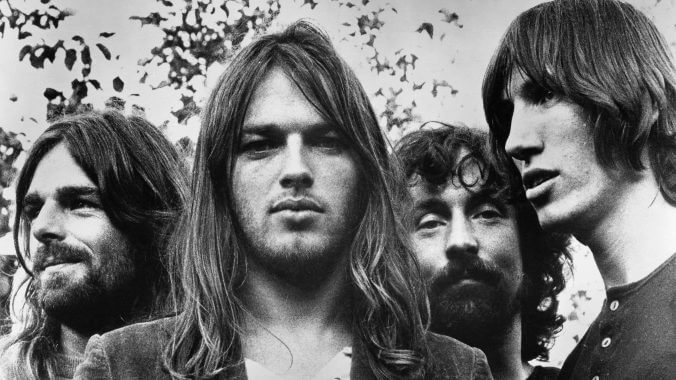
Few bands from the last 60 years have made as big of an imprint on music as Pink Floyd. There’s the Beatles, the Rolling Stones, Led Zeppelin and then the prog-rock and psychedelic quartet from London with that famous album brandishing a triangle on the cover. Started by Syd Barrett, Roger Waters, Nick Mason and Richard Wright in 1965, Pink Floyd awed and experimented their way through numerous intervals—each chapter propelling them even further into rock ‘n’ roll immortality. When Barrett’s declining health led to him leaving the band in 1968 and guitarist David Gilmour was brought into the fold, the lineup would become solidified and remain tight for the next 11 years—until Waters fired Wright while making The Wall.
Barrett’s initial psych and space rock blueprint would set the band in motion towards grandfathering prog-rock into the mainstream, while Waters and Gilmour would form an eruptive, brilliant pairing that would—over the course of time—become a destructive pairing for the band altogether. Waters would leave the project entirely after 1983, all but ending the version of Pink Floyd that endured as a cultural monolith in the echelons of music history. Gilmour, Mason and Wright would try keeping the band’s momentum going at full speed, but they would fall short in their post-Waters endeavors—never quite recreating the acclaim they had on The Wall, Wish You Were Here and beyond.
This year, the band’s most famous record—The Dark Side of the Moon—turns 50 years old. In those five decades, the album has transcended its own legacy, becoming one of the most recognizable music projects in human history. In Paste‘s 21-year history, we’ve never ranked Pink Floyd’s catalog—until now. With 15 albums to sort through, doing so is no small feat. We’re going to give it our best go nonetheless. So, without further ado, here is every Pink Floyd album, ranked from worst to best.
15. Ummagumma (1969)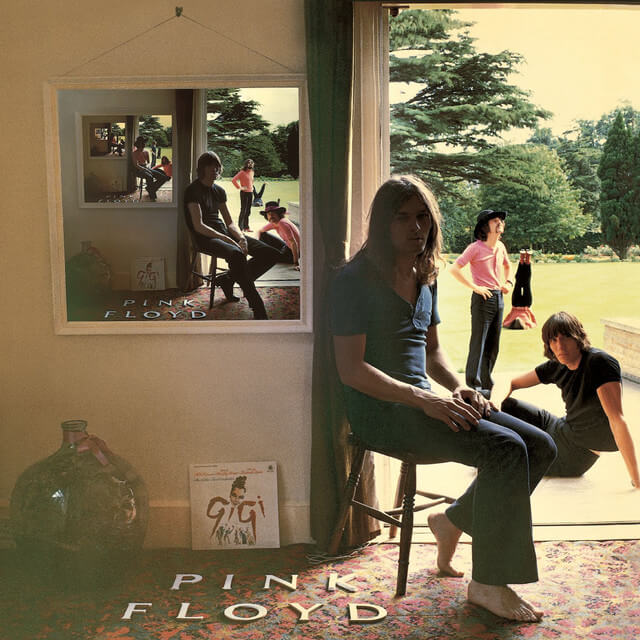 Half a studio album and half a live album, Ummagumma is a less promising rehash of A Saucerful of Secrets. I’d argue no all-time great band has ever had such a disgraceful, uninteresting period in their career quite like Pink Floyd did in 1968 and 1969. With More brandished smack-dab in the middle, Ummagumma caps off a rough three-album run for the group—and much of that has to do with it being inconsistent and unforgivingly rough around the edges. It’s two records smashed into one release, and neither are that good. Side one features a live rendition of Barrett’s “Astronomy Domine” without him (a horrible sin, as Gilmour, Waters and company cannot resurrect their former bandleader’s brilliance) and much-too-long, overwrought attempt at “Careful with That Axe, Eugene.” As for the studio album section, Richard Wright’s “Sysyphus” suite is unlistenable, industrial noise vomit without any sort of ambition or heart. Even Gilmour’s three-part “The Narrow Way” and Mason’s three-part “The Grand Vizier’s Garden Party” are just putrid and relentless misses.
Half a studio album and half a live album, Ummagumma is a less promising rehash of A Saucerful of Secrets. I’d argue no all-time great band has ever had such a disgraceful, uninteresting period in their career quite like Pink Floyd did in 1968 and 1969. With More brandished smack-dab in the middle, Ummagumma caps off a rough three-album run for the group—and much of that has to do with it being inconsistent and unforgivingly rough around the edges. It’s two records smashed into one release, and neither are that good. Side one features a live rendition of Barrett’s “Astronomy Domine” without him (a horrible sin, as Gilmour, Waters and company cannot resurrect their former bandleader’s brilliance) and much-too-long, overwrought attempt at “Careful with That Axe, Eugene.” As for the studio album section, Richard Wright’s “Sysyphus” suite is unlistenable, industrial noise vomit without any sort of ambition or heart. Even Gilmour’s three-part “The Narrow Way” and Mason’s three-part “The Grand Vizier’s Garden Party” are just putrid and relentless misses.
14. More (1969)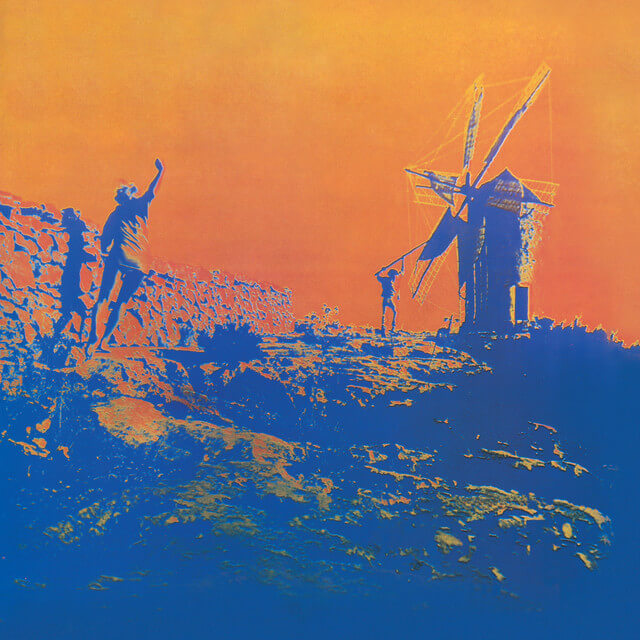 I went back and forth over whether or not More had a place on this list. I mean, it is a soundtrack album more than it’s a studio record that properly reflects who Pink Floyd were becoming as a unit. Barbet Schroeder’s film was panned by critics for romanticizing how drugs can destroy the lives of young people, and the director insisted that the soundtrack not actually fit with what was happening on-screen, according to Waters some years later. The idea was to construct a cycle of songs that could be on the radio or the television or street noise. I think that’s what makes it worthy of this list, since you can listen to it without a single clue as to what More is even about. The record itself is rowdy and jumbled, comprising mostly instrumentals that are damn near the antithesis of Pink Floyd instrumentals. Waters helmed the writing for all but two of the tracks, but “Green Is the Colour” is actually a really brilliant folk tune from him. “The Nile Song” and “Cymbaline” are nice, too, but the majority of this album is fluff unworthy of being revisited. Perhaps we can put an asterisk next to it, since it’s a studio album that’s not really a studio album. Then again, it’s a soundtrack album that’s not really a soundtrack album, either, so what’s the point?
I went back and forth over whether or not More had a place on this list. I mean, it is a soundtrack album more than it’s a studio record that properly reflects who Pink Floyd were becoming as a unit. Barbet Schroeder’s film was panned by critics for romanticizing how drugs can destroy the lives of young people, and the director insisted that the soundtrack not actually fit with what was happening on-screen, according to Waters some years later. The idea was to construct a cycle of songs that could be on the radio or the television or street noise. I think that’s what makes it worthy of this list, since you can listen to it without a single clue as to what More is even about. The record itself is rowdy and jumbled, comprising mostly instrumentals that are damn near the antithesis of Pink Floyd instrumentals. Waters helmed the writing for all but two of the tracks, but “Green Is the Colour” is actually a really brilliant folk tune from him. “The Nile Song” and “Cymbaline” are nice, too, but the majority of this album is fluff unworthy of being revisited. Perhaps we can put an asterisk next to it, since it’s a studio album that’s not really a studio album. Then again, it’s a soundtrack album that’s not really a soundtrack album, either, so what’s the point?
13. The Endless River (2014)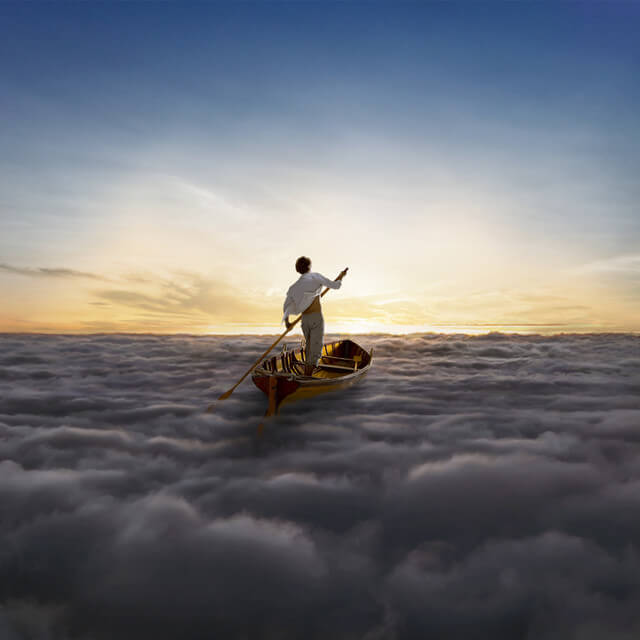 Dubbed the final Pink Floyd album, The Endless River isn’t much of a final album at all—given that it is instrumental music that was recorded during The Division Bell sessions 20 years prior. What made it new, however, was that some of the material was re-worked and finished in 2013 and 2014 on the houseboat Gilmour owns. Given that it is very much a collection of Division Bell leftovers, it’s hard to consider The Endless River as anything but meaningless. The record lives up to its name, too, as the 53-minute runtime never seems to end, as Gilmour, Mason and Wright seem to let every track bleed into the next. More of an exercise in white-noise machine-quality work than a grand, final statement from one of the greatest rock bands of all-time, The Endless River turns still nearly from the jump. Its lead single, “Louder than Words” is, likely, the only standout on Pink Floyd’s last hurrah—an aimless, wandering, unambitious and dull coda.
Dubbed the final Pink Floyd album, The Endless River isn’t much of a final album at all—given that it is instrumental music that was recorded during The Division Bell sessions 20 years prior. What made it new, however, was that some of the material was re-worked and finished in 2013 and 2014 on the houseboat Gilmour owns. Given that it is very much a collection of Division Bell leftovers, it’s hard to consider The Endless River as anything but meaningless. The record lives up to its name, too, as the 53-minute runtime never seems to end, as Gilmour, Mason and Wright seem to let every track bleed into the next. More of an exercise in white-noise machine-quality work than a grand, final statement from one of the greatest rock bands of all-time, The Endless River turns still nearly from the jump. Its lead single, “Louder than Words” is, likely, the only standout on Pink Floyd’s last hurrah—an aimless, wandering, unambitious and dull coda.
12. A Saucerful of Secrets (1968)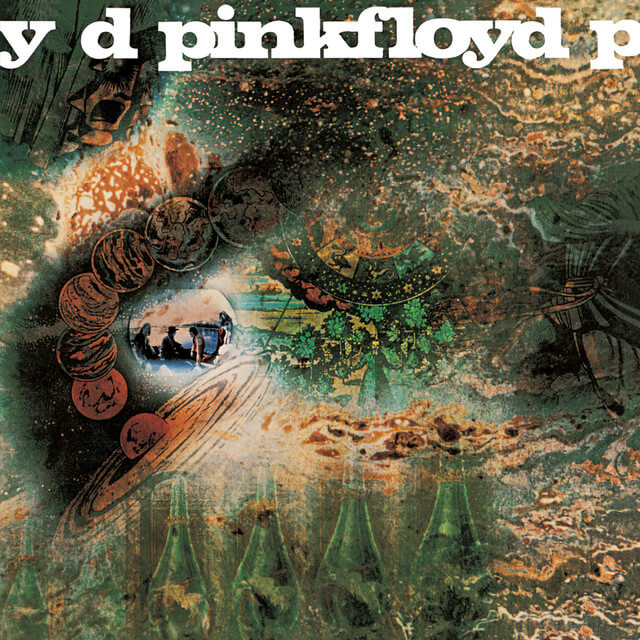 Pink Floyd’s sophomore album is one, big transitional document. The band had brought in David Gilmour on guitar and Syd Barrett quickly relinquished his spotlight to the 22-year-old axeman—as his health started to decline during the recording process. Barrett would only play on three tracks, and you can hear how jumbled the foursome was in trying to re-establish themselves under Gilmour’s newfound presence. A real trial in space rock, A Saucerful of Secrets is messy, all over the place and downright puzzling at times. The record is definitely not their worst, given that songs like “Set the Controls for the Heart of the Sun” and “Jugband Blues” exist on it—the latter of which being Barrett’s swan song with the band, and a rather exciting one at that. The four-part, 11-minute “A Saucerful of Secrets” suite that kicks off side two is ambitious but mostly chaotic noise, as if Pink Floyd were trying to make field recordings of the inner-mechanisms of a black hole. Knowing that the next two releases would be More and Ummagumma, however, A Saucerful of Secrets sounds like a revelation in the company of those lackluster entries.
Pink Floyd’s sophomore album is one, big transitional document. The band had brought in David Gilmour on guitar and Syd Barrett quickly relinquished his spotlight to the 22-year-old axeman—as his health started to decline during the recording process. Barrett would only play on three tracks, and you can hear how jumbled the foursome was in trying to re-establish themselves under Gilmour’s newfound presence. A real trial in space rock, A Saucerful of Secrets is messy, all over the place and downright puzzling at times. The record is definitely not their worst, given that songs like “Set the Controls for the Heart of the Sun” and “Jugband Blues” exist on it—the latter of which being Barrett’s swan song with the band, and a rather exciting one at that. The four-part, 11-minute “A Saucerful of Secrets” suite that kicks off side two is ambitious but mostly chaotic noise, as if Pink Floyd were trying to make field recordings of the inner-mechanisms of a black hole. Knowing that the next two releases would be More and Ummagumma, however, A Saucerful of Secrets sounds like a revelation in the company of those lackluster entries.
-

-

-

-

-

-

-

-

-

-

-

-

-

-

-

-

-

-

-

-

-

-

-

-

-

-

-

-

-

-

-

-

-

-

-

-

-

-

-

-

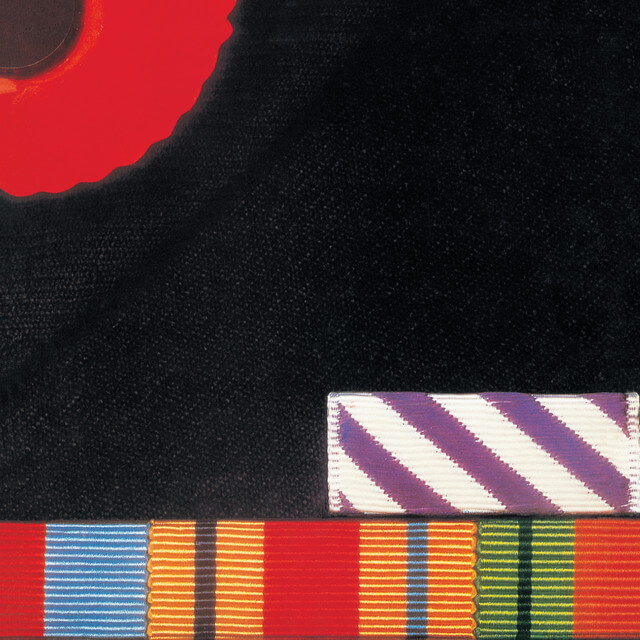 Let’s face it, The Final Cut is barely a Pink Floyd album. It just can’t be so without Richard Wright on the keys, as his imprint on the band is integral to what they had become by 1983. Across the album’s 13 tracks, there’s almost no moment where it feels like there was any input from Gilmour and Mason. Truly, to its core, The Final Cut is a Roger Waters solo album with instrumental contributions from his bandmates who’ve now been cast to the wayside. Why they even felt inclined to put the Pink Floyd name on this thing is beyond confusing. It was initially meant to be the soundtrack for the film adaptation of The Wall, until Waters rewrote it as a concept album focused on the Falklands War that zeroes in on the bassist’s own examination of fatherly betrayal and militarism. It was the band’s lowest-selling record since Meddle, breaking a 12-year run of massive success. Gilmour disliked Waters’ political songwriting, which sparked many arguments around the creative direction of Pink Floyd altogether. Waters would depart the band afterwards, leaving The Final Cut as his final contribution to Pink Floyd’s legacy—and what an impassionate, subpar note to end on.
Let’s face it, The Final Cut is barely a Pink Floyd album. It just can’t be so without Richard Wright on the keys, as his imprint on the band is integral to what they had become by 1983. Across the album’s 13 tracks, there’s almost no moment where it feels like there was any input from Gilmour and Mason. Truly, to its core, The Final Cut is a Roger Waters solo album with instrumental contributions from his bandmates who’ve now been cast to the wayside. Why they even felt inclined to put the Pink Floyd name on this thing is beyond confusing. It was initially meant to be the soundtrack for the film adaptation of The Wall, until Waters rewrote it as a concept album focused on the Falklands War that zeroes in on the bassist’s own examination of fatherly betrayal and militarism. It was the band’s lowest-selling record since Meddle, breaking a 12-year run of massive success. Gilmour disliked Waters’ political songwriting, which sparked many arguments around the creative direction of Pink Floyd altogether. Waters would depart the band afterwards, leaving The Final Cut as his final contribution to Pink Floyd’s legacy—and what an impassionate, subpar note to end on.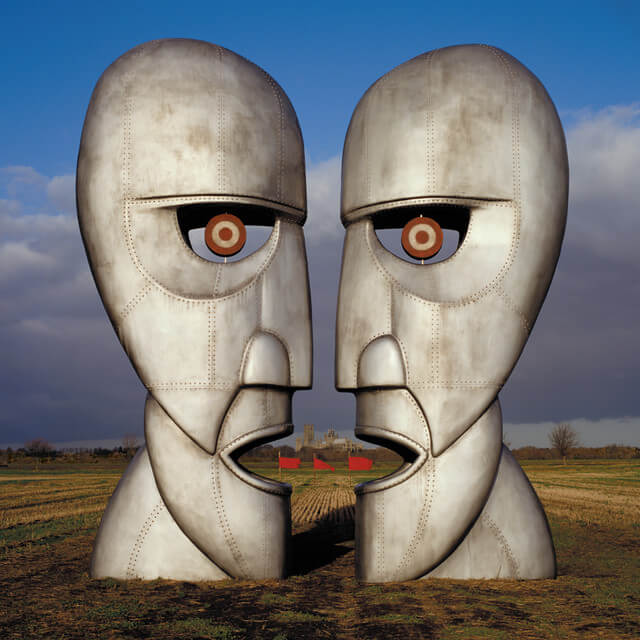 The Division Bell is in the same conversation as The Final Cut, given that it doesn’t feature songwriting input from the full band. What makes this 1994 record better, however, is that Mason and Wright are on it and contributing just as often as Gilmour (it’s one of the few things the project does right). The Division Bell largely underwhelms, given that—much to the dismay of Gilmour fanatics—the guitarist is only terrific when Waters acts as his foil. What makes Pink Floyd such a compelling group is how they are, at their best, the ultimate double-sided coin. Without Gilmour and Waters working together and against one another simultaneously, no Pink Floyd record truly succeeds and the music lacks the edge that makes them one of the most recognizable and beloved bands to ever do it. The Division Bell is fine, but “fine” isn’t a word that should be in Pink Floyd’s vocabulary. “Marooned” and ”Coming Back to Life” are very valid and interesting compositions, as is the enigmatic, brilliant closing track “High Hopes,” but much of the record sprawls past six minutes in ways that are eons less interesting than those 20-minute epics from 20 years prior.
The Division Bell is in the same conversation as The Final Cut, given that it doesn’t feature songwriting input from the full band. What makes this 1994 record better, however, is that Mason and Wright are on it and contributing just as often as Gilmour (it’s one of the few things the project does right). The Division Bell largely underwhelms, given that—much to the dismay of Gilmour fanatics—the guitarist is only terrific when Waters acts as his foil. What makes Pink Floyd such a compelling group is how they are, at their best, the ultimate double-sided coin. Without Gilmour and Waters working together and against one another simultaneously, no Pink Floyd record truly succeeds and the music lacks the edge that makes them one of the most recognizable and beloved bands to ever do it. The Division Bell is fine, but “fine” isn’t a word that should be in Pink Floyd’s vocabulary. “Marooned” and ”Coming Back to Life” are very valid and interesting compositions, as is the enigmatic, brilliant closing track “High Hopes,” but much of the record sprawls past six minutes in ways that are eons less interesting than those 20-minute epics from 20 years prior. Another example of Gilmour leading Pink Floyd into an uninteresting, monotonous spiral, A Momentary Lapse of Reason gets to be the best post-The Wall album for two reasons: “Learning to Fly” and “On the Turning Away,” easily the two greatest songs affixed to the band’s legacy after their massive double-album that fractured them. Largely recorded on Gilmour’s houseboat, A Momentary Lapse of Reason feels like a swift pivot from the prog-rock Pink Floyd had helped grandfather, instead focusing on vocal exploration and imaginative arrangements. It ushered Wright back into the fold, after Waters wrongfully fired him while making The Wall. The first non-concept record made by the group in 15 years, its instrumentation is clean, ambitious and ornamental. With operatic rock construction and choral harmonies from Darlene Koldenhoven, Carmen Twillie, Phyllis St. James and Donny Gerrard, it’s dense and just as bountiful as any of the band’s previous chapters. What brings it down is Gilmour’s lyricism and direction, proving once and for all that Waters was the storytelling brilliance in the band—and that, without each other, the fruits of their own labors had grown mightily spoiled.
Another example of Gilmour leading Pink Floyd into an uninteresting, monotonous spiral, A Momentary Lapse of Reason gets to be the best post-The Wall album for two reasons: “Learning to Fly” and “On the Turning Away,” easily the two greatest songs affixed to the band’s legacy after their massive double-album that fractured them. Largely recorded on Gilmour’s houseboat, A Momentary Lapse of Reason feels like a swift pivot from the prog-rock Pink Floyd had helped grandfather, instead focusing on vocal exploration and imaginative arrangements. It ushered Wright back into the fold, after Waters wrongfully fired him while making The Wall. The first non-concept record made by the group in 15 years, its instrumentation is clean, ambitious and ornamental. With operatic rock construction and choral harmonies from Darlene Koldenhoven, Carmen Twillie, Phyllis St. James and Donny Gerrard, it’s dense and just as bountiful as any of the band’s previous chapters. What brings it down is Gilmour’s lyricism and direction, proving once and for all that Waters was the storytelling brilliance in the band—and that, without each other, the fruits of their own labors had grown mightily spoiled.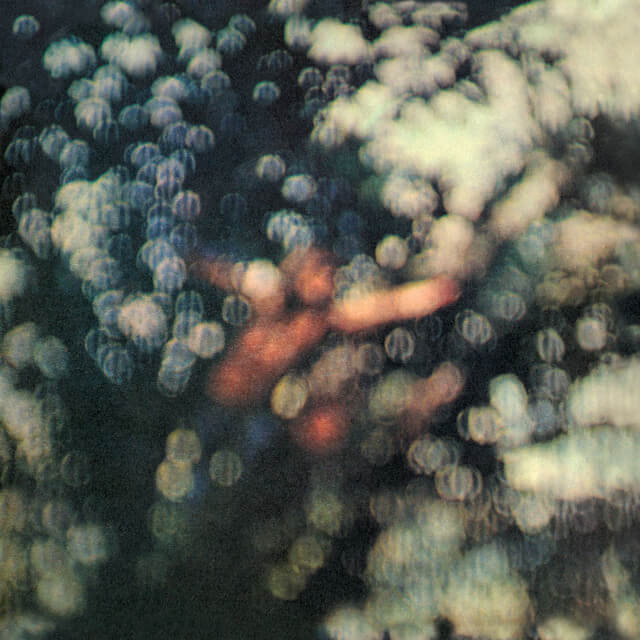 Both the soundtrack for the French film La Vallée and a stopgap between Meddle and The Dark Side of the Moon, Obscured by Clouds is a good album overshadowed by its own placement in a catalog. There’s much to chew on throughout this record, even if it’s the weakest entry the band had in the 1970s (which, given the output it’s stacked up against, makes complete sense). I’ll strongly argue the case of “Wot’s…Uh the Deal” being one of Gilmour and Waters’ best constructions together, highlighted by the former’s juxtaposing vocals that employ a whirlwind of angelic grit. “Childhood’s End” and “Burning Bridges” are great, too, as the album is one of the best showcases of Richard Wright’s organ-playing across the board. Where More was a catastrophic, mostly unlistenable failure, Obscured by Clouds showed that Pink Floyd could right the ship and make a soundtrack record that was not just good enough to scale the length of a film but also deftly serve its place in the band’s discography. It’s a hard line to walk, but you’re bound to make it work better on the second try.
Both the soundtrack for the French film La Vallée and a stopgap between Meddle and The Dark Side of the Moon, Obscured by Clouds is a good album overshadowed by its own placement in a catalog. There’s much to chew on throughout this record, even if it’s the weakest entry the band had in the 1970s (which, given the output it’s stacked up against, makes complete sense). I’ll strongly argue the case of “Wot’s…Uh the Deal” being one of Gilmour and Waters’ best constructions together, highlighted by the former’s juxtaposing vocals that employ a whirlwind of angelic grit. “Childhood’s End” and “Burning Bridges” are great, too, as the album is one of the best showcases of Richard Wright’s organ-playing across the board. Where More was a catastrophic, mostly unlistenable failure, Obscured by Clouds showed that Pink Floyd could right the ship and make a soundtrack record that was not just good enough to scale the length of a film but also deftly serve its place in the band’s discography. It’s a hard line to walk, but you’re bound to make it work better on the second try.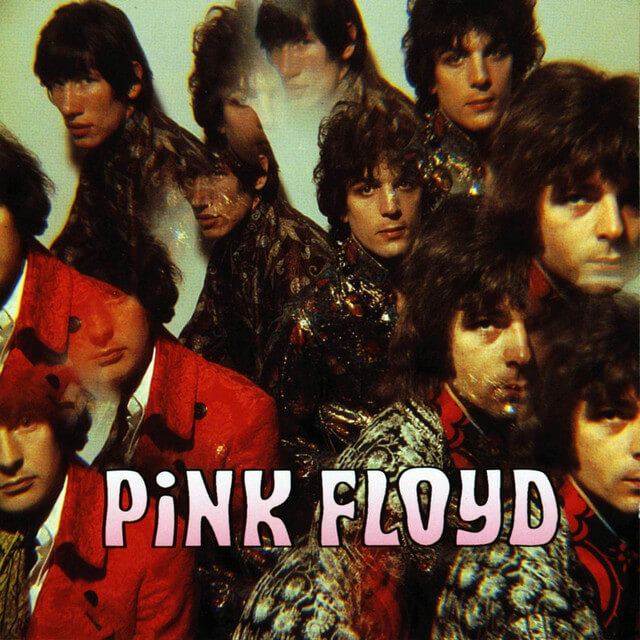 It’s hard to fully quantify The Piper at the Gates of Dawn, given that it’s much more of a Syd Barrett record than anything else. As far as debuts go, it’s a pretty damn good one—and it’s the most psychedelic Pink Floyd ever truly got. Barrett wrote all but eight of 11 tracks, including “Astronomy Domine,” “Lucifer Sam” and “Bike.” The best track on the record, though—the nine-minute instrumental “Interstellar Overdrive”—was composed by Barrett, Waters, Wright and Mason together, and it’s a towering space rock epic. The track’s melody is so chromatic and indescribable that you’re better off just letting it play through rather than attempting to piece it out.
It’s hard to fully quantify The Piper at the Gates of Dawn, given that it’s much more of a Syd Barrett record than anything else. As far as debuts go, it’s a pretty damn good one—and it’s the most psychedelic Pink Floyd ever truly got. Barrett wrote all but eight of 11 tracks, including “Astronomy Domine,” “Lucifer Sam” and “Bike.” The best track on the record, though—the nine-minute instrumental “Interstellar Overdrive”—was composed by Barrett, Waters, Wright and Mason together, and it’s a towering space rock epic. The track’s melody is so chromatic and indescribable that you’re better off just letting it play through rather than attempting to piece it out.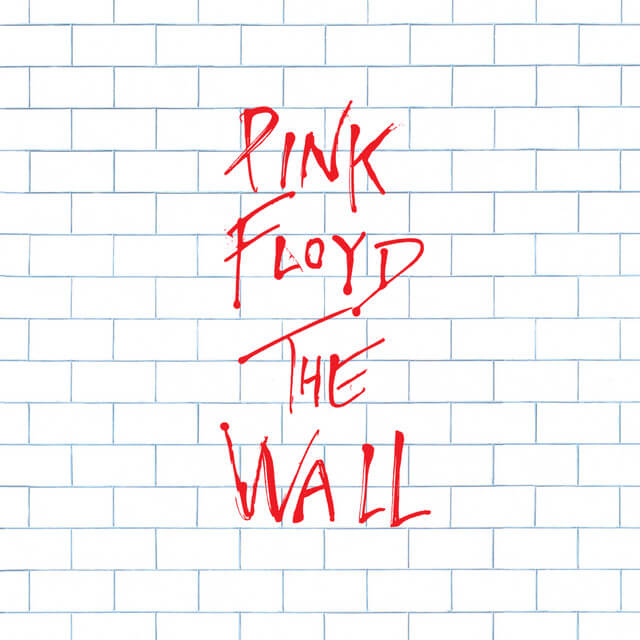 The Wall is Roger Waters’ opus, not Pink Floyd’s. Only three out of 26 tracks had contributions from the rest of the band, most notably “Comfortably Numb”—which is more associated with Gilmour and his all-time, masterful, shredding guitar solos. The Wall is a good record, there’s no doubting that, but Waters’ thematic, coming-of-age, diaristic obsessions are stretched way too thin across this thing. You could shave about 12 or 13 tracks off the final cut and it would finally become a brilliant, prevailing rock ‘n’ roll benchmark. Instead, it’s merely a compelling exercise in deconstructing class disparity in the UK. As far as rock operas go, The Wall is at the top of the list.
The Wall is Roger Waters’ opus, not Pink Floyd’s. Only three out of 26 tracks had contributions from the rest of the band, most notably “Comfortably Numb”—which is more associated with Gilmour and his all-time, masterful, shredding guitar solos. The Wall is a good record, there’s no doubting that, but Waters’ thematic, coming-of-age, diaristic obsessions are stretched way too thin across this thing. You could shave about 12 or 13 tracks off the final cut and it would finally become a brilliant, prevailing rock ‘n’ roll benchmark. Instead, it’s merely a compelling exercise in deconstructing class disparity in the UK. As far as rock operas go, The Wall is at the top of the list.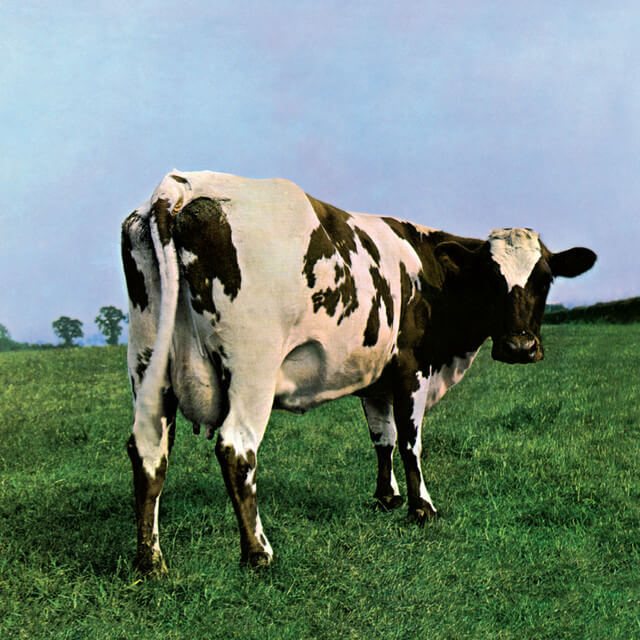 The legacy of Atom Heart Mother is interesting, given that many people just downright hate this album—and I get it. Anything released even remotely near the garbage fire that is Ummagumma can have its own destiny ruined by association alone. But I promise you, Atom Heart Mother is so worthwhile. As a precursor to Meddle, what a statement it became. Pink Floyd adopted a concept they employed on Ummagumma, by doing a full-band suite on side one and then showcasing Waters, Wright and Gilmour individually on side two. What didn’t work a year earlier certainly worked this time around, as the six-part “Atom Heart Mother” is an incredible movement of ambient, space rock, psych-blues and experimental pop.
The legacy of Atom Heart Mother is interesting, given that many people just downright hate this album—and I get it. Anything released even remotely near the garbage fire that is Ummagumma can have its own destiny ruined by association alone. But I promise you, Atom Heart Mother is so worthwhile. As a precursor to Meddle, what a statement it became. Pink Floyd adopted a concept they employed on Ummagumma, by doing a full-band suite on side one and then showcasing Waters, Wright and Gilmour individually on side two. What didn’t work a year earlier certainly worked this time around, as the six-part “Atom Heart Mother” is an incredible movement of ambient, space rock, psych-blues and experimental pop.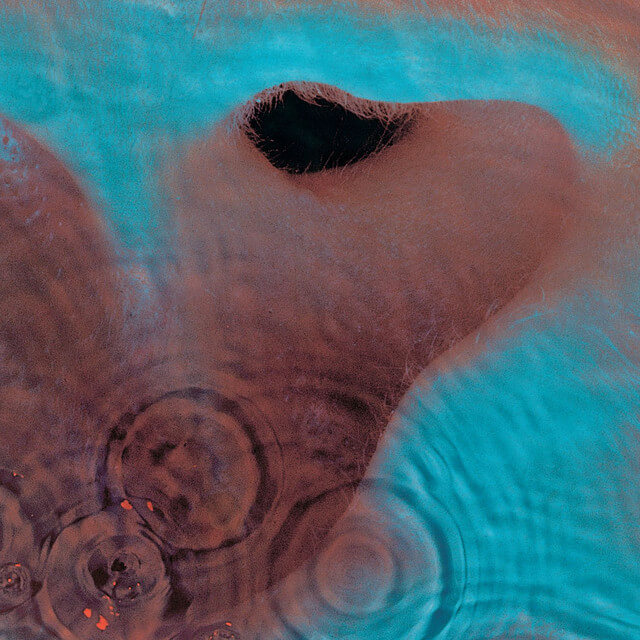 Perhaps the project that will go down as Pink Floyd’s most underrated, Meddle should have received the praise that The Dark Side of the Moon earned—but the record quickly became overshadowed by its blockbuster younger sibling two years later. But what must be celebrated about Meddle is how it rebelled against the soft-rock that was populating the mainstream charts at the time in 1971. It’s bold, dark and fascinating in every conceivable way, long defined by the 23-minute finale “Echoes,” which takes up all of side two. Look beyond what the band did there, however, and you will find one of the sharpest side ones in rock ‘n’ roll that decade. Songs like “One of These Days” and “Fearless” are among Pink Floyd’s very best, which says a lot—given that it wouldn’t be long before they assembled a catalog of The Dark Side of the Moon, Wish You Were Here, Animals and The Wall in succession by the decade’s end. Meddle was daring then and it’s still daring now, with a tracklist featuring some of the best collaborative writing from Gilmour and Waters ever. It took the foursome six albums to get into the groove that would forever define their entire career. Better late than never, as they say.
Perhaps the project that will go down as Pink Floyd’s most underrated, Meddle should have received the praise that The Dark Side of the Moon earned—but the record quickly became overshadowed by its blockbuster younger sibling two years later. But what must be celebrated about Meddle is how it rebelled against the soft-rock that was populating the mainstream charts at the time in 1971. It’s bold, dark and fascinating in every conceivable way, long defined by the 23-minute finale “Echoes,” which takes up all of side two. Look beyond what the band did there, however, and you will find one of the sharpest side ones in rock ‘n’ roll that decade. Songs like “One of These Days” and “Fearless” are among Pink Floyd’s very best, which says a lot—given that it wouldn’t be long before they assembled a catalog of The Dark Side of the Moon, Wish You Were Here, Animals and The Wall in succession by the decade’s end. Meddle was daring then and it’s still daring now, with a tracklist featuring some of the best collaborative writing from Gilmour and Waters ever. It took the foursome six albums to get into the groove that would forever define their entire career. Better late than never, as they say.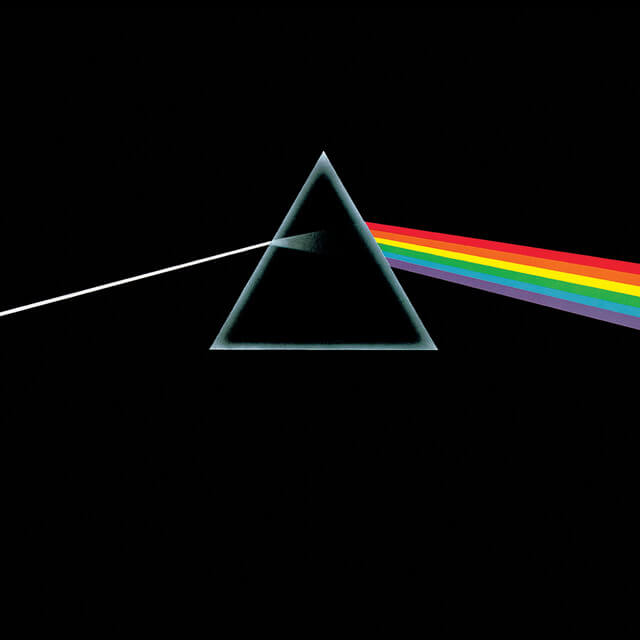 All at once a stroke of brilliance and a record greatly saturated by consumerism, The Dark Side of the Moon is the one Pink Floyd record that everybody and their mother has heard about. You might not be able to name a song from it, sure, but you absolutely would recognize that iconic cover in a heartbeat if you saw it on the wall. Very few rock albums have had such an impact on music, and there’s a reason that it’s spent 981 weeks on the Billboard 200 over the last 50 years. It’s a cornerstone record in any collection, a great starting point for any prog-rock novice.
All at once a stroke of brilliance and a record greatly saturated by consumerism, The Dark Side of the Moon is the one Pink Floyd record that everybody and their mother has heard about. You might not be able to name a song from it, sure, but you absolutely would recognize that iconic cover in a heartbeat if you saw it on the wall. Very few rock albums have had such an impact on music, and there’s a reason that it’s spent 981 weeks on the Billboard 200 over the last 50 years. It’s a cornerstone record in any collection, a great starting point for any prog-rock novice.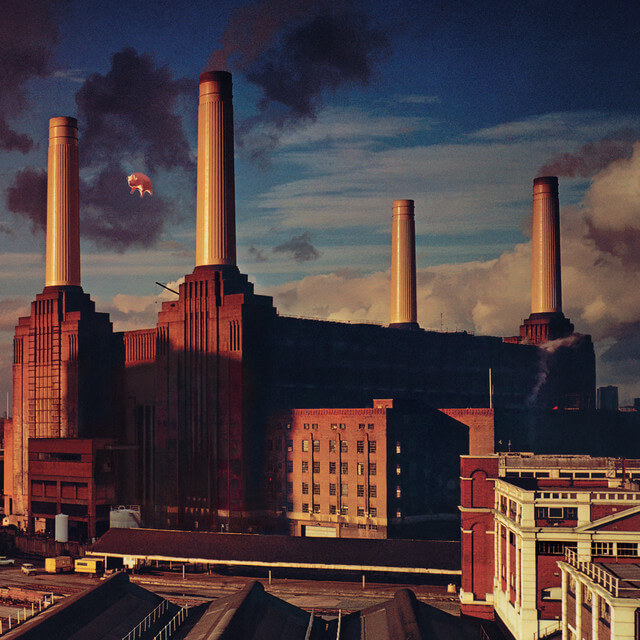 Pink Floyd’s 10th album is a masterpiece. Animals juxtaposes bitterness and agony with gorgeous, relentless humanity. At just five tracks clocking in at a total of 41 minutes, it’s not the densest Pink Floyd album, but it’s their brightest foray into prog- and folk-rock. A recipient of mixed reviews from critics, the proper favorability has finally caught up with the record. Rolling Stone was particularly negative, calling the band’s message “pointless and tedious,” though it ought to be argued those cyclical, uncomfortable schematics fit perfectly in-line with the record’s ugly, industrial backdrop.
Pink Floyd’s 10th album is a masterpiece. Animals juxtaposes bitterness and agony with gorgeous, relentless humanity. At just five tracks clocking in at a total of 41 minutes, it’s not the densest Pink Floyd album, but it’s their brightest foray into prog- and folk-rock. A recipient of mixed reviews from critics, the proper favorability has finally caught up with the record. Rolling Stone was particularly negative, calling the band’s message “pointless and tedious,” though it ought to be argued those cyclical, uncomfortable schematics fit perfectly in-line with the record’s ugly, industrial backdrop.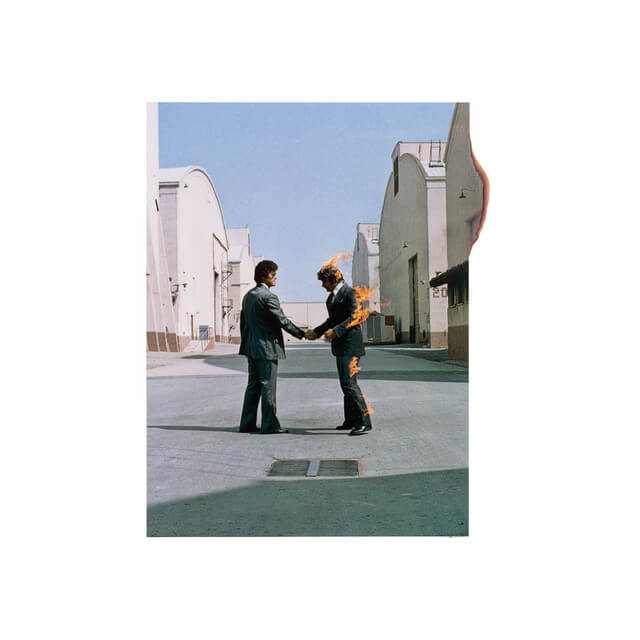 Worthy of its praise for the longevity and limitless perfection of the title track alone, Wish You Were Here is the dense, damning love letter to Syd Barrett that the rest of the band took seven years to write and record after the frontman’s departure. So few tributes in rock ‘n’ roll have ever been so generous, and the scope of Wish You Were Here reaches much farther than that—as the band tackles alienation and music criticism in ways that were much more complex than anything they’d ever written about before. The centerpiece of the record is the nine-part “Shine On You Crazy Diamond,” which was cut in half and positioned as the opening track on side one and the closing track on side two.
Worthy of its praise for the longevity and limitless perfection of the title track alone, Wish You Were Here is the dense, damning love letter to Syd Barrett that the rest of the band took seven years to write and record after the frontman’s departure. So few tributes in rock ‘n’ roll have ever been so generous, and the scope of Wish You Were Here reaches much farther than that—as the band tackles alienation and music criticism in ways that were much more complex than anything they’d ever written about before. The centerpiece of the record is the nine-part “Shine On You Crazy Diamond,” which was cut in half and positioned as the opening track on side one and the closing track on side two.






































